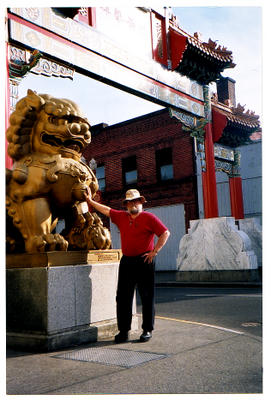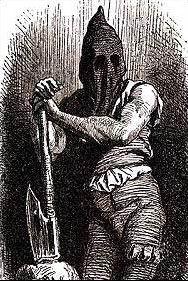
In a sleepy little Northwest village called Bellingham, in the almost-forgotten state of Washington, lies a mediocre, middle-sized, almost wholly unremarkable educational factory called Western Washington University.
It was here that I fled for refuge after graduating from high-school, where my inquisitive nature and passion for higher education soon saw my class attendance drop to the bare minimum while I got stoned with the poets that lurked in the woods, and ate acid by the ream.
Despite never writing a single paper during my two years there, I maintained B grades. WWU and I apparently had a decent, wink-wink, win-win sort of relationship in which I paid the administration, did almost no work, and got decent grades from the faculty, about whom I remember almost nothing. There were some characters, like the Holly Hobby-dress-wearing anthropology teacher who would only talk about Brunei, or the literature professor who wore smart gloves, had a little moustache, and carried himself like a Frenchman, but I don't remember learning much from them and I certainly offered little in return. My university career at Western followed this pattern, until I took Theatre Arts 201.
Like other students, I took the film studies class as an elective, so I could get university credit for watching movies. The class was infamous for being easy, and it was in this spirit of apathy that I wandered into class in my Guatemalan sweater with my beads and my ponytail and my patchouli a few times a week to watch Battleship Potemkin, Chinatown, and Siesta.
 The professor, Perry Mills, was a brute with a glass eye and a platform shoe
The professor, Perry Mills, was a brute with a glass eye and a platform shoe assisting one mutant leg, and he wore the same smelly paisley shirt each class. His extreme ugliness was matched only by his extreme passion for film. It was obvious by his playful monologues that he cared about these films deeply, or at least cared about some aspect of these films deeply, and he became excited when students became excited about these movies.
But as the course progressed, it became obvious that the loose grades were not without cost. (Perry used almost exactly the same test every year, and would pass out last year's test a few days beforehand.) Raising one's hand in response to one of Mills' questions, saying something, and thus participating in the Pavlovian call-and-response that passes for intellectual dialogue at American universities, did not fly with Professor Mills.
"That's the stupidest thing I've heard this year," Mills would say in response to a student's normally-useful rhetoric.
On other occasions, Mills would call us "a bunch of baseball-cap-wearing yuppie maggots from the I-5 corridor" and describe in extended fantastic monologues the terrible things our parents had done to get the money so that we could go to college and watch films that we would never understand because we were just going to get jobs and make babies anyway.

I had never seen such a teacher. I had never seen a teacher gleefully describe how he would ride his bicycle across campus, veering toward clusters of students to make them scatter like the pigeons they were. I had never seen a teacher openly describe to a class of students the bullshit he was involved in with an administration who simply didn't like his style. I had never seen a teacher treat me as an equal, and then go for my jugular when I proved by my pretensions that I wasn't.
Mills never seemed to hold a grudge, probably because he could hardly discern one idiot from the next, and his verbal lunges had the quality of sport rather than personal attack. Each new class was a fresh match, with previous animosities forgotten. This was intellectual dialogue at its best.
I took a Playwriting class from him later, and not only did he teach his subject well and with passion, but he laid bare the machinations of my "education" that I was too ignorant to ferret out on my lonesome. In retrospect, Mills surely had some influence in my immediate delight upon later discovering Mark Twain, Florence King, Jonathan Swift, James Abbott McNeill Whistler, J.P. Donleavy, Ayn Rand, Hunter Thompson, and H.L. Mencken. Curmudgeons the lot of them, I may have never sought them were it not for Professor Mills, and may have remained satisfied with Jack Kerouac, Herman Hesse, Jim Morrison, and other literary sedatives I was engaged by at the time.
Perry Mills frightened me, and is without question the best professor I've ever had.
Now on to the bloody meat of the story:
For years the administration of Western Washington University has tried to tame Professor Perry Mills, to threaten him with inconveniences and minor penalties for his unorthodox methods, and to dangle treats and promises of a nice soft life should he abandon these methods. Mills delights in this game, and has kept it up since the last time I saw him, almost 15 years ago. But something changed after the 11th of September in 2001, in which the subsequent lockdown tactics of Homeland Security and the resulting ripples of social paranoia have found Mills suspended for carrying a pocketknife. Not a machete in one hand and a student's head in the other. A pocketknife.
 This is not, after all, simply a nostalgic story about my fondness for a professor, but an illustrative tale about how a national social doctrine can be used for effective housekeeping, sweeping out the nooks and crannies typically troublesome to get to. In the new milieu, it's suddenly easy to get rid of a pesky professor on campus. And this is a story about how those players assisting the sweeping maintain only the noblest motives.
This is not, after all, simply a nostalgic story about my fondness for a professor, but an illustrative tale about how a national social doctrine can be used for effective housekeeping, sweeping out the nooks and crannies typically troublesome to get to. In the new milieu, it's suddenly easy to get rid of a pesky professor on campus. And this is a story about how those players assisting the sweeping maintain only the noblest motives. This blog specifically chronicles a university's bureaucratic process of booting a tenured professor from his post, as well as the old dog's attempts to dig in his heels and stay put, but is more generally a fansite for an obscure professor very influential to a handful of students each year.
4 comments:
Break out the cutlasses.
Just got your blog address from former classmate (circa 1985). So very good to know you are still out there, in every meaning of the phrase. -L.Rose
I am a recipient of the Outstanding Grad. Award in Theatre from years past, and I wholeheartedly support Mr. Mills: A maverick who taught me richly and generously and treated me with the utmost of respect. He PAID ATTENTION and brought out intellectual strengths I hadn't known I possessed. His door was always open for chat -- not the mundane thespionic blather that ususally went on there -- but political and sociological issues that aroused my mind and interest. The letting go of Perry Mills is symbolic to the death of original thought and authentic rebellion in academia as it were. A grave mistake for future students indeed.
Sincerely,
Genevieve
Post a Comment